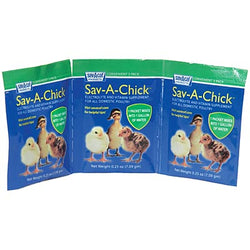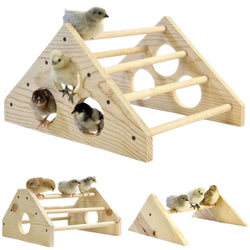Legalize Chickens DIY - Part 1
Back to blog
Legalize Chickens - Step 1: Gather Information
A.) Find out exactly which codes are prohibiting chickens in your area and what they say. This may be self-evident to some of you, but it bears discussion. Sometimes chickens are prohibited by zoning laws; sometimes by health codes. Sometimes, they're prohibited by a combination. Sometimes the issue is an HOA. Sometimes someone at your local town hall will just presume chickens are illegal to keep in your backyard... but as it turns out, there is no such prohibition on the books. Sometimes it happens that the prohibition only applies to "livestock," which may or may not include chickens. Depending on the way your local laws are written, small flocks of chickens may, quite rightfully, be regarded as pets rather than as income-producing livestock. Be sure to read the definitions of "pets," "livestock" and so forth as regarded by your local laws. It may be possible to remove the prohibition simply by changing the way the law defines pets or livestock. Do your basic research and figure out whether or not you're allowed to have chickens. If you're not, find out which laws prohibit them.
B.) Find out who can change the existing laws or codes. Once you know what the exact laws are in your area, you'll need to find out who can change them. Municipal codes are often controlled by your town's mayor and/or city council. They may be handled by a zoning board. Health codes may be written or rewritten by the local Board of Health, or by committees appointed by city officials and/or local government bodies. In many cases, people want to jump right in with a petition! But starting with the idea that you just need a good petition is wrong, or at the least incomplete. A vague petition asking your local town council to allow chickens may not be especially helpful if the town council has no power to directly change the laws you oppose. You'll need to approach the right body, and learn what the process is to getting those particular codes changed. After all, if it's the Board of Health that needs to make the changes, scheduling meetings with the mayor will be of limited use. Instead, find out who you need to contact, and learn how the individual/s who can change the law got appointed or elected.
C.) Find out if the people who can change the laws/codes already have a position on the matter Has the "legalize chickens" issue come up in your area before? It can be helpful to know what position each board or council -member held the last time this was addressed---or if there are new people who will be looking at the issue this time. Can you check voting records? Is there information that can be found in the archives of your local paper? Even if you find out some councilors are already opposed, that doesn't mean they can't be persuaded this time. We haven't seen any logical reasons to oppose your right to keep a small flocks of hens in your yard, and in many cases, you may find that the last time this came up, the people fighting for their rights were less informed than you will be. Find out what the opposition said the last time this issue was raised. You're likely to find that previously the argument against keeping chickens was a matter of ignoratio elenchi---in other words, arguments from ignorance. For instance, it's common for opponents to argue that chickens create too much waste, ignoring the fact that a small flock of chickens actually produces less waste than dogs or cats (and the waste can be composted)! Unfortunately, some people will maintain a willful ignorance and will continue to argue the point as if it's valid, despite the facts. Reasonable people, however, when presented with this fact, will then dismiss the argument that chickens create too much waste. You already have the facts on your side, so you're already in a better position than the opposition! Now that you know what sort of research to start with, you'll want to know your next step. Next week, I'll move on to Part 2, Crafting Your "Legalize Chickens" Proposal.











